In recent years, Tesla has established itself as a groundbreaking force in the automotive industry, revolutionizing the perception and adoption of electric vehicles.
As the company continues to expand its market presence and solidify its position as a leader in the electric car sector, speculation has emerged regarding the possibility of Tesla merging with a rival automobile company.
While Tesla’s Chief Executive, Elon Musk, has expressed openness to discussing such mergers under certain circumstances, the notion of Tesla aligning forces with another automotive giant raises intriguing possibilities and potential benefits.
This concept sparks curiosity about the potential synergies, technological advancements, and market dynamics that could arise from a merger between Tesla and a rival automaker, ultimately shaping the future landscape of the automotive industry.
With the recent news of Tesla sharing tech and resources with Ford & GM, there might be more in the pipeline for a merger or is it?
Let’s find out what is out there so far!
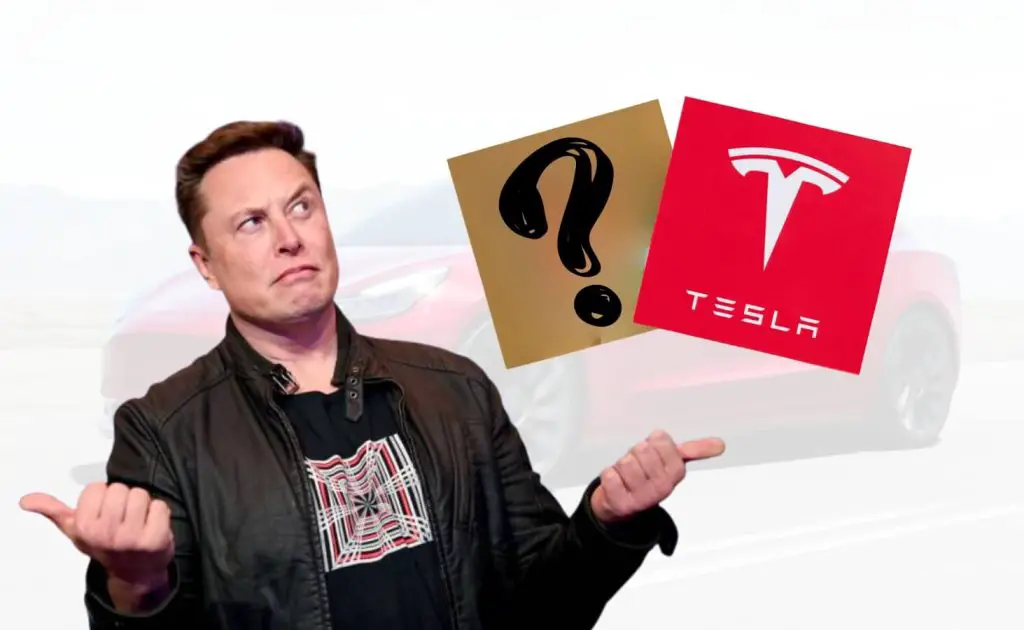
Table of Contents
Elon Musk On A Tesla Merger
During an Axel Springer event in Berlin, Tesla CEO Elon Musk expressed his openness to discussing a potential merger of his renowned electric car company with a rival.
When asked about the possibility of acquiring a competitor, Musk acknowledged that Tesla’s impressive market value, surpassing $500 billion, would make it feasible to initiate a takeover bid. However, he emphasized that Tesla had no intention of pursuing a hostile takeover.
Musk indicated that if another company proposed a merger as a mutually beneficial idea, he would be willing to engage in such discussions.
Tesla Merging With Other Automakers
In a notable development, Tesla CEO Elon Musk has expressed the company’s openness to license its Autopilot, Full Self-Driving, and electric vehicle (EV) technology to other automakers, following the recent deal with Ford regarding access to the Supercharger network.
Tesla experienced a 4% increase in its share value on Friday following the announcement that General Motors had joined Ford in a partnership to utilize Tesla’s electric-vehicle charging network.
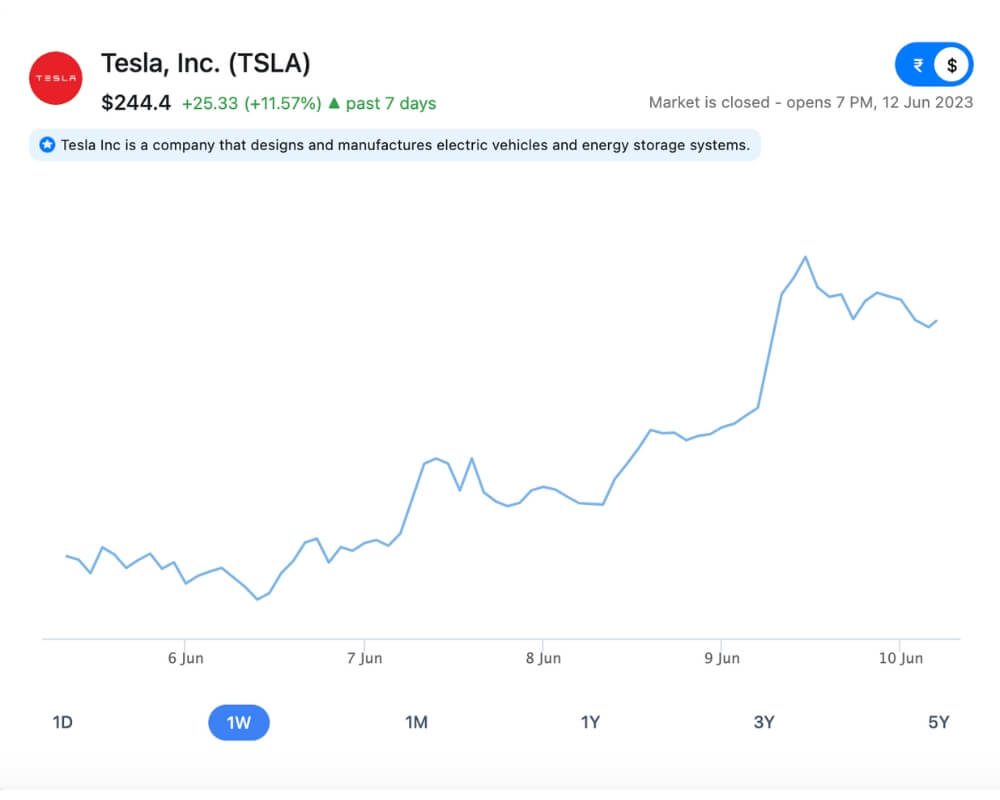
Analysts view this development as a significant victory for Tesla, as it positions Tesla Superchargers to become the industry standard in the United States.
With three major U.S. automakers now collaborating, over 60% of the country’s electric vehicle market will have access to Tesla’s North American Charging Standard (NACS), solidifying its position as the primary charging network across the nation.
This partnership underscores the growing recognition and reliance on Tesla’s infrastructure in the electric vehicle ecosystem, further bolstering Tesla’s prominence in the market.
In 2019, Fiat Chrysler Automobiles (FCA) and Renault made headlines with their plan to merge, potentially creating the world’s third-largest automaker. If the merger were to proceed, it would position the combined entity just behind automotive giants Volkswagen and Toyota, and slightly ahead of General Motors in terms of market presence and global reach.
Notably, Renault already belonged to an alliance that included Nissan, with Mitsubishi joining later. The partnership aimed to leverage shared resources and expertise to enhance their competitive edge in the industry.
Similarly, Ford and Volkswagen allied to explore collaboration in areas like electric vehicles and autonomous technology, capitalizing on their respective strengths.
In contrast to this wave of collaborations, Tesla has maintained its independent stance and has yet to engage in any notable mergers or partnerships. Despite being a trailblazer in the electric vehicle market and consistently pushing the boundaries of innovation, Tesla has chosen to chart its own course without aligning with other automakers.
This approach has allowed Tesla to maintain control over its technological advancements, brand identity, and market strategy, solidifying its reputation as a pioneering force in the industry.
Tesla & Tie-Ups
In a groundbreaking move in 2014, Tesla surprised the industry by declaring that it was making all its patents “open source.” This decision aimed to encourage innovation and accelerate the adoption of electric vehicles by allowing other companies to freely access and utilize Tesla’s patented technology.
However, nearly a decade later, it remains unclear to what extent companies have actively utilized Tesla’s open-sourced patents and incorporated them into their own products and technologies.
While having access to patents without the risk of being sued for their use is undoubtedly beneficial, implementing the technology effectively is a separate challenge altogether. Companies often find that directly licensing technology and collaborating with the original patent holder provides a more effective path for successfully adopting and integrating the desired technology.
A notable example is Ford’s collaboration with Tesla to implement Tesla’s NACS (North American Charging Standard) charging standards.
By working directly with Tesla, Ford can ensure seamless integration and compatibility within its own charging infrastructure, benefiting from Tesla’s expertise and design capabilities.
Why Tesla Is Doing It Alone?
Throughout its history, Tesla has experienced notable investments from industry giants like Toyota and Daimler, which would have proved quite beneficial for those parties involved in today’s time.
While those partnerships have concluded, yielding substantial returns, Tesla has adopted a unique approach to funding its growth in recent years. By leveraging its strong market position and investor confidence, Tesla has tapped into the equity markets, selling its stock or issuing debt to secure the necessary capital.
This access to the financial markets has emerged as a distinctive advantage for Tesla, setting it apart from competitors who cannot utilize Wall Street as a reliable funding source.
Rather than being begrudged for leveraging this capital-raising option, Tesla should be commended for capitalizing on the opportunity. It would be imprudent for the company to overlook such a valuable avenue for fueling its ambitious expansion and technological advancements.
What To Expect In The Future?
It is important to accurately interpret Elon Musk’s statements regarding potential mergers involving Tesla and any other automakers. Musk’s remarks did not suggest that he was open to Tesla being acquired, particularly considering their current stock price, which makes them financially out of reach for any other automaker.
Why?
Think of it, given the current valuation and how strong Tesla’s hold in its market segment, Tesla doesn’t really need a merger.
Instead, Musk’s openness to a “merger” refers to leveraging Tesla’s high stock price as buying power to acquire a major automaker like GM or Ford. This strategy holds some merit, given that Tesla’s market capitalization currently exceeds Ford’s by over tenfold.
With this valuation, Tesla could potentially purchase a significant stake in a company like Ford using a relatively small amount of Tesla stock. Merger transactions often involve a combination of stock and cash, with the specific terms and ratios determined by the boards and shareholders of the involved companies.
The potential move for Tesla to acquire a major automaker like Ford or GM carries both upsides and downsides. On the positive side, it would provide Tesla with a non-premium brand name under which they could introduce more affordable electric vehicles (EVs).
By taking over Ford, Tesla could initiate a restructuring process that involves shutting down non-EV operations within Ford and reworking the entire lineup to be based on Tesla’s powertrain technology.
This would position Tesla as the premium brand, similar to Toyota’s relationship with Lexus, where the vehicles are “premium” but designed and manufactured by Toyota. This would result in cost savings through shared components. Moreover, Tesla would gain a substantial number of experienced engineers, invaluable mass production trade secrets, and a network of existing factory locations.
However, there are downsides to consider as well.
Acquiring another automaker would mean purchasing a company with the intent to scrap a significant portion of it. Tesla would likely seek to move away from the traditional dealer model associated with Ford, potentially disrupting established relationships and channels.
Additionally, there may be a need to reduce staff who cannot be repurposed to work on EV-related projects. While this acquisition could provide a rapid path for Tesla to achieve significant scale, it is not without its costs and challenges.
Bottomline
The latest announcement signals a potential shift in Tesla’s approach, as it presents an opportunity for Tesla to collaborate directly with other automakers in a manner reminiscent of its early partnerships with Daimler and Toyota.
While Tesla made its patents “open source” back in 2014, the extent to which companies have actively utilized Tesla’s technology remains unclear. While having access to patents provides legal protection, implementing the technology effectively requires collaboration and licensing directly from the company that designed it.
Elon Talks About Future Ambitions of Tesla: Producing More Trucks & Using Tesla Patents for Good
For instance, Ford’s cooperation with Tesla on implementing the NACS charging standards exemplifies the benefits of working directly with the technology originator. With Tesla now expressing a willingness to engage in licensing agreements, the automotive industry may witness increased opportunities for cross-industry collaboration, potentially fueling advancements in electric and autonomous vehicle technology.
Apart from a rare mention by Musk, there have been no official announcements or indications of Tesla merging with another automaker company. Tesla has historically pursued an independent path and focused on its own technological advancements and market position.
It’s worth noting that the automotive industry is dynamic, and mergers and acquisitions are not uncommon, so future developments could potentially change the landscape. It would be best to stay updated with the latest news and official statements from Tesla for the most accurate information. Let us know what you think in the comments.
FAQs
Who Is Tesla Going To Merge With?
As of the latest updates, there have been no official announcements or indications of Tesla merging with any specific automaker be it GM or Ford, or any other. The possibility of a merger is speculative, but the latest news presents a strong possibility given the latest tech and platform sharing.
We're teaming up with @tesla to enhance your electric vehicle experience. More charging stations, less range anxiety, more sustainable journeys. It's about your convenience, not our competition. #EverybodyIn pic.twitter.com/D4joovLjPh
— General Motors (@GM) June 8, 2023
Does Tesla Have Any Strategic Alliances?
Tesla has had a longstanding partnership with Panasonic for the supply of battery cells for its electric vehicles. Panasonic has been one of the primary suppliers of lithium-ion battery cells for Tesla.
Ford recently announced a partnership with Tesla that enables Ford electric vehicles (EVs) to utilize Tesla’s charging stations through an adapter. Furthermore, starting in 2025, Ford plans to adopt Tesla’s charging technology as the standard for its EVs.
Following Ford’s announcement, General Motors also made a similar deal with Tesla, highlighting a growing trend of automakers joining forces to leverage Tesla’s established charging infrastructure.
Why Is Tesla Different From Other Companies?
One key factor that sets Tesla apart is its unwavering focus on electric vehicles (EVs) and sustainable transportation. Unlike traditional automakers, Tesla has prioritized EV technology from the beginning, driving the widespread adoption of emission-free vehicles. Also, Tesla has cultivated a strong brand image, attracting a passionate and dedicated customer base. The company has created a sense of excitement and loyalty among its customers and enthusiasts, often referred to as the “Tesla community.”


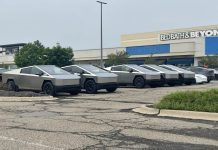











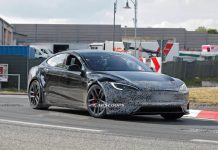
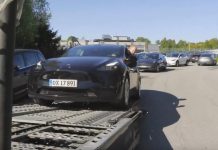
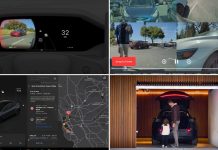
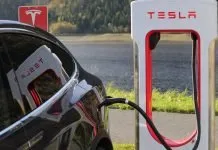

Look forward to seeing the turnout of combined car industry, could be some interesting products developed.
There is no chance Tesla does a merger with Ford or GM. They are not interested in adding all those union employees.
Buy ur toyota 4 runner trd pro b4 2024.
After thar the autos produced by every co. Will be as ffs .
Tin boxes loaded w electronics to break down.lmao.
I really don’t think that Elons ego would work with a merger.
Nothing to do with ego. That’s your anti-Elon bias showing. Other than a ‘low cost brand name’ the legacy automakers have absolutely nothing to offer. They are saddled with debt, their factories are not built from the ground up with EVs in mind hence useless, their unions are a cost sucking albatross, their car dealer networks are a money sapping middleman, their culture executes at the speed of a snail, and they have 0 technological know how and 0 software prowess.
I’d say Yesla would be a good parent to BMW. BMW has struggled in the EV market and could leverage Tesla for that, BMW is a premium brand fitting in with Tesla, and the World footprint of BMW would fit well with Tesla expansion
Tesla isn’t a good match for any legacy automaker, but several startups in China or the likes of Rivian (out of bankruptcy) might pose interesting results. Freightliner or a legacy semi maker would make more sense so as to compartmentalize Tesla’s semi out of main production giga factories where concentration on passenger vehicle could output better.